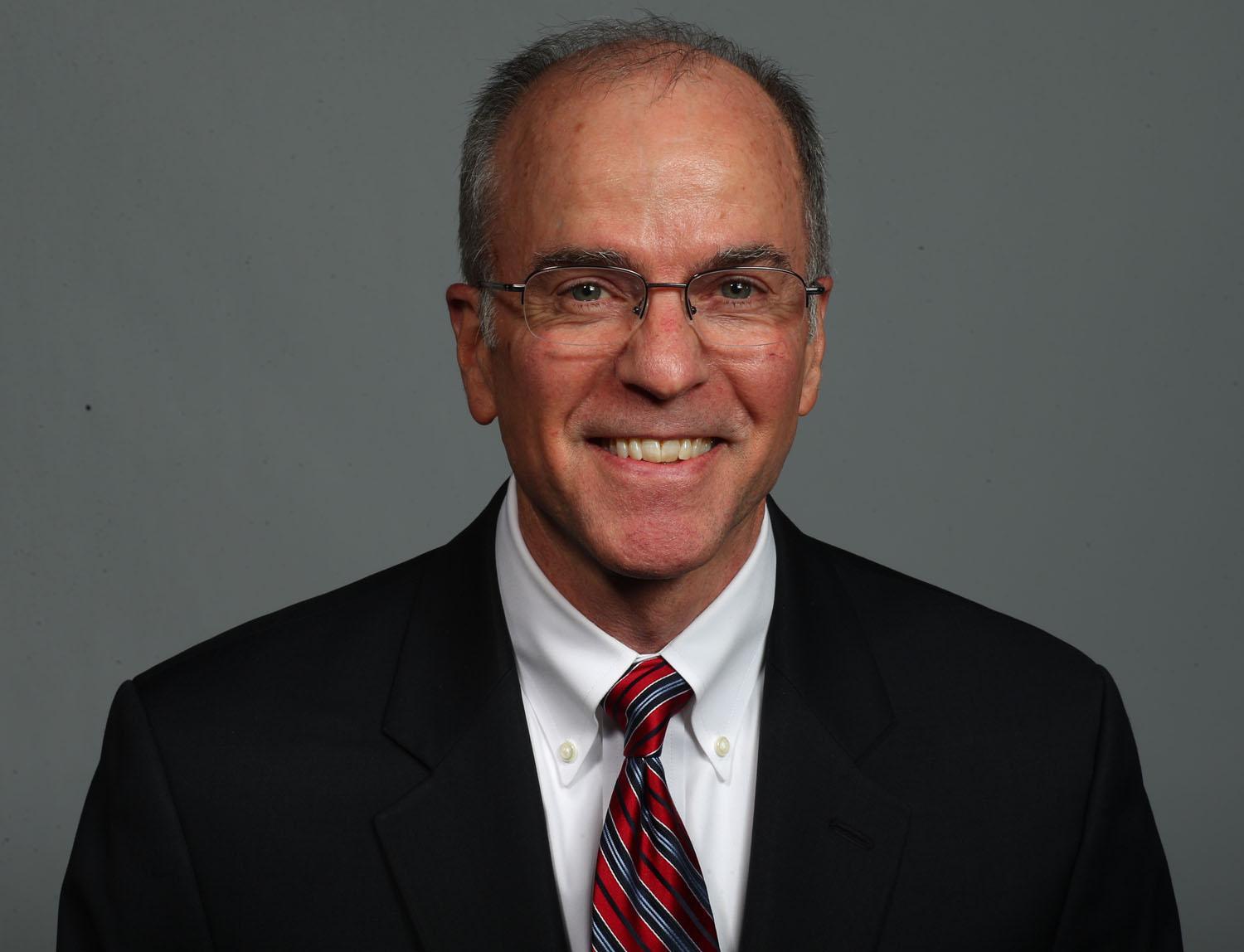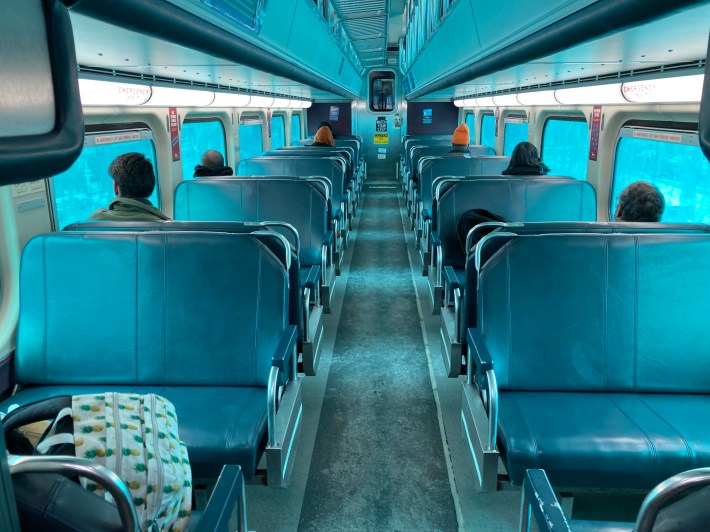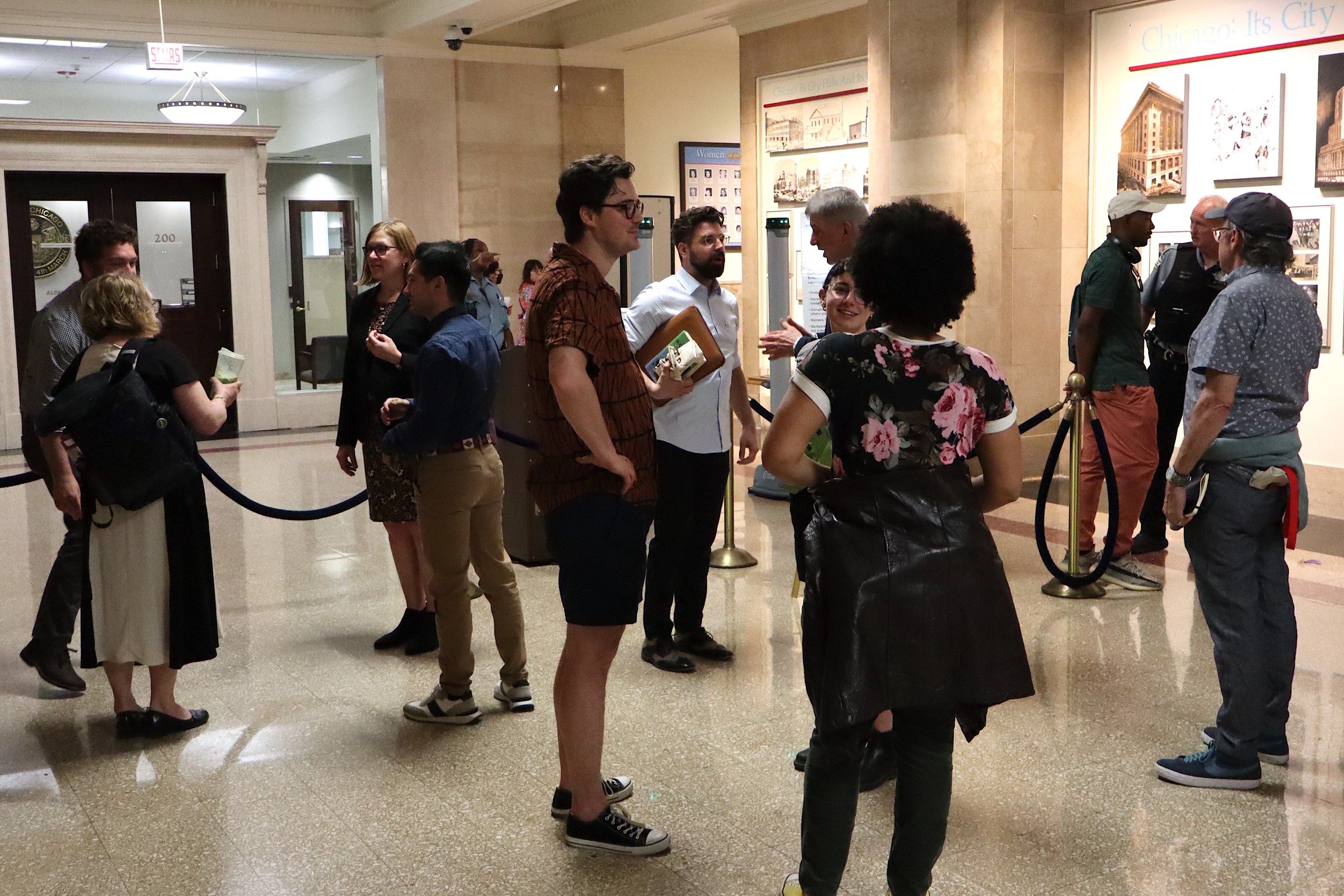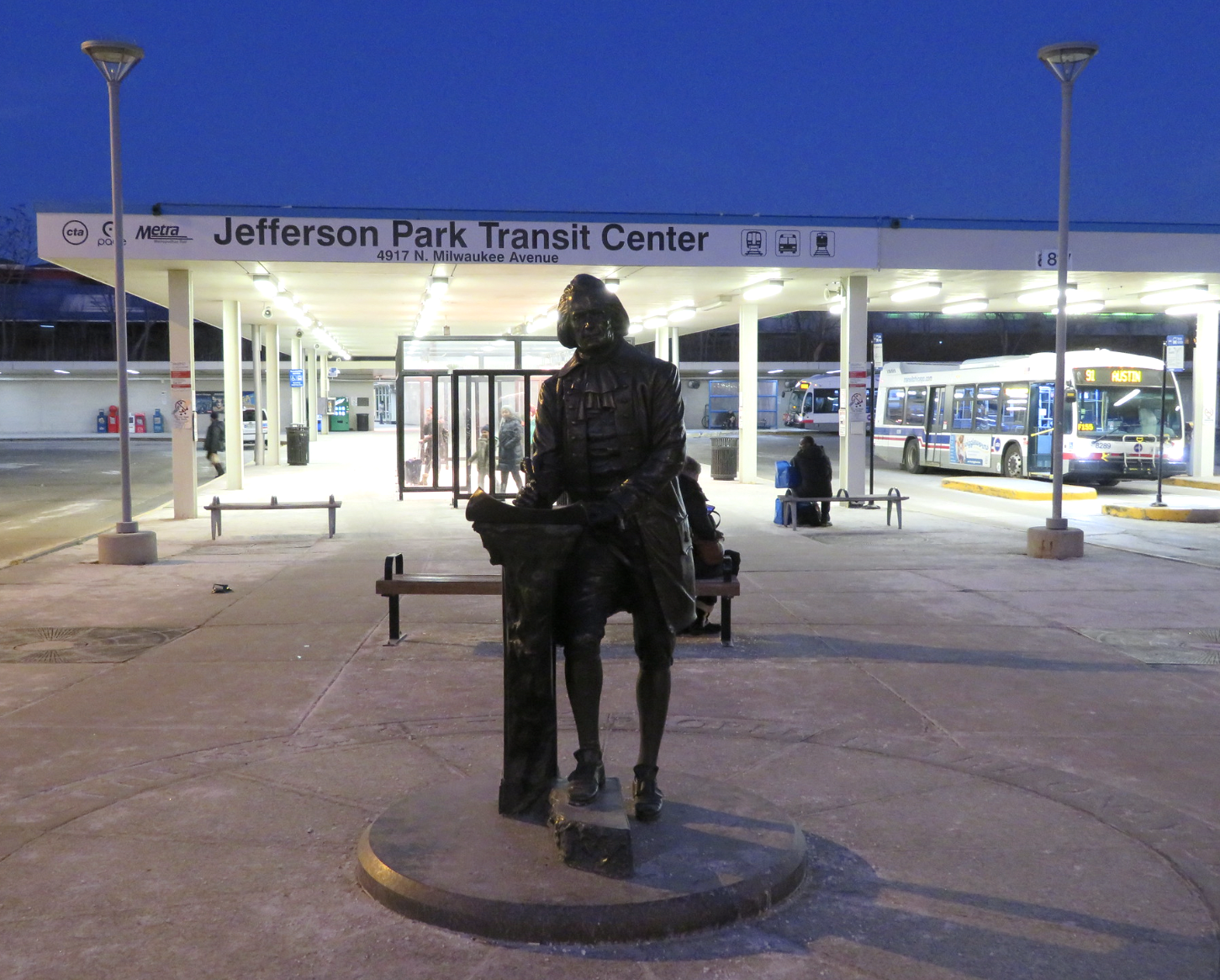Trib’s Steve Chapman: Transit use is down right now, so we should never invest in it again
2:46 PM CDT on April 12, 2021

Steve Chapman
Sensible people across the country have pointed out that after we're done with the COVID-19 pandemic, a time when there has been less driving, society shouldn't go back to the car-centric status quo. For example, today the Los Angeles Times ran an editorial yesterday titled, "After the pandemic, outdoor dining and ‘Slow Streets’ should live on," arguing that “The pandemic showed us what’s possible. We can [repurpose] street lanes and parking spots to create lively, communal open spaces. Let’s not roll back progress toward safer, healthier cities.”
But in the bizarro world of the Times' sister publication, the right-leaning Chicago Tribune, columnist Steve Chapman argued on Friday that the lessons of the pandemic are that increased transit investment is foolish, and we should instead be putting more focus on car-based transportation. This wrongheaded strategy would exacerbate the urgent problems of climate change and traffic violence, including the 45-percent spike in on-street crash deaths Chicago saw last year.
Chapman maintained that it was silly President Joe Biden to recently propose more than doubling federal money for public transportation to $85 million in his infrastructure plan. The columnist argued that "like generals preparing for the last war while failing to imagine how the next one will differ, [the administration] has the perfect strategy for an era that has passed."
Why? Chapman noted that CTA and Metra ridership plummeted during the pandemic, and still has a long way to go to recover to pre-COVID levels.
That drop in ridership was due to job layoffs; most white-collar workers telecommuting during the coronavirus; and some people being afraid to ride in buses and trains while there's an airborne respiratory pandemic. (Studies show riding transit has been fairly safe throughout the crisis.) But it won't be long until the economy recovers, workers return to downtown offices in large numbers, and mass vaccination helps people use transit with renewed confidence, boosting ridership again.
But while Chapman said he's confident just about ever other facet of society is sure to rebound, he insisted pubic transportation won't. "Mass transit won’t return to anything resembling its previous passenger use — not sooner and not later. Many people who used to take the bus or the train to the office will keep working remotely all or most of the time. Some of those who return to their workplaces will be more inclined to drive thanks to reduced traffic."

Sure, there will probably be some permanent reduction in in-person office work. But Steve, you do understand that if more people opt to drive downtown because there's currently less congestion, traffic jams will soon get as bad as or worse than before, right?
Chapman noted that local transit ridership was already falling for several years before the pandemic. That's largely due to the rise of artificially cheap ride-hail services, propped up by venture capital and unfair labor practices.
The columnist, who lives in the suburbs and describes himself as "vaguely libertarian," argued that we should take a market-based approach to urban transportation. "In a normal market, companies invest less in products with declining sales and more in products that are in growing demand. Americans have migrated away from mass transit, even in places where it is extensive, affordable and convenient. But the president wants to spend more on the very type of transportation whose real-world appeal has eroded."
Again, it's not that ride-hail, which has multiple downsides for society because it generates more car trips, is succeeding on its own steam. It's heavily subsidized and unprofitable, and probably financially unsustainable in the long run. If Uber and Lyft eventually have to start charging their customer a rate that reflects their actual costs, they won't siphon nearly as many trips away from the CTA.
Driving private cars is also heavily subsidized, with the federal government currently spending more than three times as much on highways than transit. The Biden plan seeks to level the funding playing field to encourage transit use, which unlike driving and ride-hail is good for society and reduces public expenses related to congestion, crashes, pollution, and health impacts.
Chapman argued that investing in transit "to improve service and comfort... would cost money without pulling in many more riders," asserting that the planned Red Line extension and improvements to other lines are a waste of money.
But the federal cash infusion, which would allow the CTA to make upgrades to buses, rail cars, train stops, track, signals, and power systems, will, in fact, make service faster and more reliable, and make the stations and vehicles more pleasant places to spend time. As ridership increases, more eyes-in-the-trains will also promote safety and civility in the system, which will in turn will encourage more people to ride, especially at night, creating a virtuous circle that will win back riders from Uber and Lyft.
But the columnist instead wants to spend more public money on car-based transportation. "City residents who don’t own vehicles may be better served by vouchers that could be used for Uber and Lyft trips or for hourly car rental programs such as Zipcar." Again, less public transportation use and more driving equals more congestion, pollution, and traffic deaths.
“Transit is a waste of money, better shovel taxpayer-funded vouchers to tech companies instead”
— Star:Line Chicago (@StarLineChicago) April 12, 2021
So it's not transit advocates like Biden who are "like generals preparing for the last war while failing to imagine how the next one will differ." Rather, it's folks like Chapman who want to perpetuate the car-centric public policy of the 20th Century, ignoring the safety, environmental, and equity challenges of the 21st.
In addition to editing Streetsblog Chicago, John writes about transportation and other topics for additional local publications. A Chicagoan since 1989, he enjoys exploring the city on foot, bike, bus, and 'L' train.
Read More:
Stay in touch
Sign up for our free newsletter
More from Streetsblog Chicago
They can drive 25: At committee meeting residents, panelist support lowering Chicago’s default speed limit
While there's no ordinance yet, the next steps are to draft one, take a committee vote and, if it passes, put it before the full City Council.
One agency to rule them all: Advocates are cautiously optimistic about proposed bill to combine the 4 Chicago area transit bureaus
The Active Transportation Alliance, Commuters Take Action, and Equiticity weigh in on the proposed legislation.



